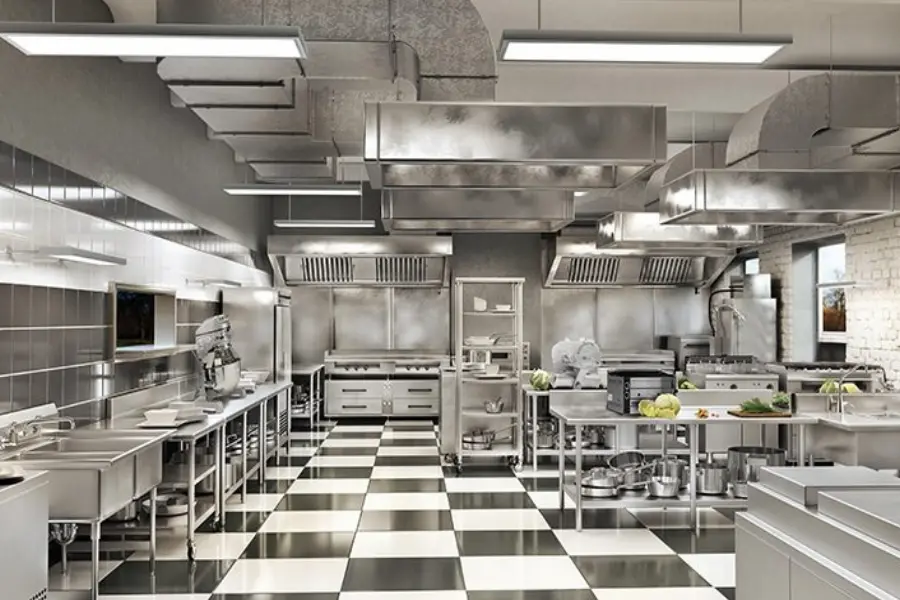In the fast-paced world of hospitality, a commercial kitchen is more than just the heart of an operation, it’s a complex ecosystem where efficiency, safety, and compliance intersect. Behind every well-functioning kitchen lies meticulous planning and design that ensures every process flows seamlessly while meeting stringent safety standards. This is where a Kitchen Consultant plays a pivotal role, bringing expertise that bridges creativity, compliance, and operational excellence. In the broader framework of hospitality consulting, their insights help transform kitchens into spaces that are not only efficient but also safe and regulation-compliant.
Why Safety and Compliance Are the Cornerstones of Commercial Kitchens

The hospitality industry operates under constant pressure, tight service timelines, multiple teams working in confined spaces, and equipment running at full capacity. Within this high-stress environment, even minor lapses in safety or workflow design can lead to significant risks: workplace injuries, food contamination, or non-compliance penalties.
Regulatory standards such as FSSAI, HACCP, and international guidelines set by bodies like NSF and ISO define clear parameters for food safety, ventilation, waste management, and fire protection. However, achieving and maintaining compliance across every operational touchpoint requires more than just adhering to checklists, it demands systems thinking and expert integration.
That’s where a Kitchen Consultant’s expertise becomes indispensable.
The Consultant’s Role: From Design to Daily Operations

A Kitchen Consultant is not just a designer—they are a strategist who translates culinary vision into a functional, compliant, and safe operational environment. Their work begins long before the first piece of equipment is installed and continues well into post-opening assessments.
Here’s how Kitchen Consultants enhance safety and compliance at every stage:
- Strategic Layout Planning: By mapping the kitchen flow from receiving to dispatch, consultants eliminate cross-contamination zones and reduce collision points. Proper zoning, for raw, cooked, and storage areas—ensures hygiene and operational efficiency.
- Equipment Selection & Placement: Choosing certified equipment that meets safety and energy standards is crucial. Consultants ensure each appliance is correctly specified, ventilated, and positioned to reduce fire hazards and improve ergonomics.
- Fire & Ventilation Systems: Commercial kitchens are prone to heat, grease, and smoke accumulation. Consultants design integrated fire suppression systems, optimized exhaust layouts, and airflow plans to create a safer working environment.
- Compliance Integration: Every design decision aligns with local and international codes, covering food handling, waste disposal, drainage, and air quality standards. Consultants work closely with architects, contractors, and facility managers to ensure all approvals are secured.
- Workflow Optimization: Efficiency and safety go hand in hand. A well-planned kitchen layout reduces unnecessary movement, minimizes manual handling, and enhances productivity without compromising safety.
Practical Insights and Case Examples

In a recent hotel project in Southeast Asia, the consulting team redesigned the kitchen workflow to separate the bakery, hot kitchen, and dishwashing areas. This reduced heat exposure for staff by 30% and significantly improved air circulation. In another instance, a large resort chain in India faced recurring fire incidents due to poor exhaust design. With the intervention of a Kitchen Consultant, a customized hood filtration and fire suppression system was installed, cutting maintenance costs and improving safety compliance across all outlets.
These examples highlight a crucial point: proactive kitchen design prevents incidents before they occur, ensuring long-term operational stability and brand credibility.
The Broader Impact: Safety as a Brand Asset
In today’s hospitality landscape, safety and compliance are more than operational obligations, they’re brand differentiators. Guests, staff, and regulators all perceive a property’s commitment to safety as a marker of reliability and professionalism.
For hotel operators, engaging a Kitchen Consultant within the framework of hospitality consulting means more than regulatory assurance. It means:
- Consistent operational standards across multiple outlets or franchises.
- Reduced liability and insurance risks through compliance-driven design.
- Enhanced staff morale and retention, thanks to safer working environments.
- Positive brand reputation, built on transparency and responsibility.
By integrating safety and compliance from the ground up, consultants enable businesses to focus on what truly matters, delivering exceptional guest experiences without disruption.
HPG Consulting: Building Safer, Smarter Kitchens for the Future

At HPG Consulting, safety and compliance are embedded into every stage of kitchen design and planning. With extensive experience across hotels, restaurants, industrial kitchens, and institutional catering, the firm’s experts ensure each project adheres to the highest global standards of safety and efficiency.
Through its specialized hospitality consulting expertise, HPG Consulting provides end-to-end guidance, from fire suppression system design to workflow optimization, HACCP-compliant layouts, and regulatory documentation, helping hospitality businesses minimize risk while maximizing performance. The approach combines technical precision with deep operational insight, ensuring kitchens are not only compliant today but adaptable for tomorrow’s demands.
Conclusion: Designing for Safety, Built for Success
As the hospitality industry grows more complex and regulated, the need for expert Kitchen Consulting becomes ever more critical. Safe, efficient, and compliant kitchens are the foundation of successful operations—and it takes specialized knowledge to achieve that balance.